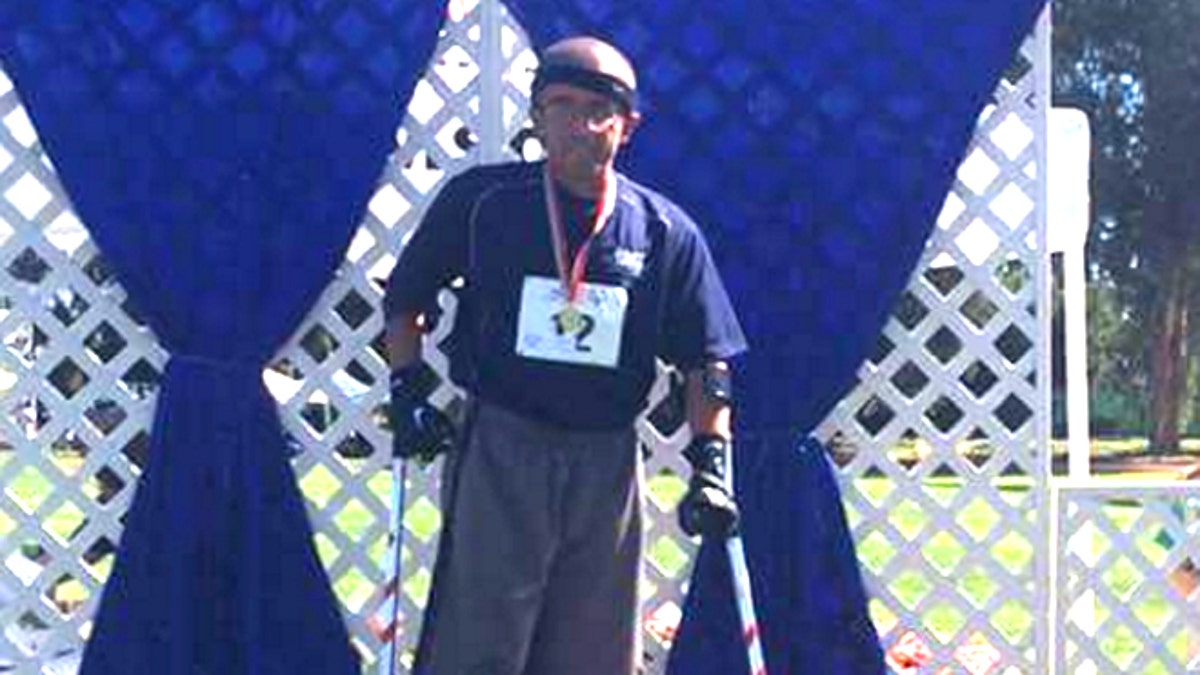
Edward Garcia, an 11-time Special Olympian (Edward Garcia @soscchamp)
An 11-time Special Olympic long-distance walker was once suffering excruciating pain and in danger of losing his vision as he desperately searched for a doctor who would take him seriously. Edward Garcia, who was diagnosed with hydrocephalus at 11 months old, found his savior in Dr. Isaac Young at Ronald Reagan UCLA Medical Center, PEOPLE reported.
“Every doctor said my CT scans looked fine,” Garcia, 31, told PEOPLE, “but I knew this wasn’t how I was supposed to be feeling.”
Garcia had already undergone 26 surgeries by the time he was 8 years old to help manage hydrocephalus. The condition causes cerebrospinal fluid to accumulate in the cavities deep in the brain and has been managed by a surgically implanted drainage system called a shunt, PEOPLE reported.
From the OR to the top of the podium. #undefeated pic.twitter.com/6NI2qnTtgc
— Edward Garcia (@soscchamp) April 19, 2016
In 2011 he began waking up with headaches, chest pain, nausea and vision loss, and knew the shunt was malfunctioning, but technology wasn’t advanced enough to detect it. When the pain became unbearable, he took himself to the emergency room at Ronald Reagan UCLA Medical Center.
“I remember there were five doctors in my room, and I told them, ‘If you open me up, you will find that something is wrong,’” Garcia told the magazine. The athlete feared death or severe disability was near.
Yang took his patient’s word for it and decided to operate. He found that Garcia’s shunt had broken in a region not detected by the scans. He repaired the shunt and Garcia woke up pain free.
“The first thing Dr. Yang told me after the surgery was, ‘You’ll never hear a doctor say this, but I was wrong and you were right,’” Garcia told PEOPLE.
He said the words meant more to him because, as a disabled person, he feels doctors often talk down to him or easily dismiss his symptoms. He believes that if Yang hadn’t trusted him, he could have died.
Instead, Garcia returned to training for the Special Olympics and recently presented Yang with a gold medal that he won at the Special Olympics state finals.
“It was a joy to give him the medal,” Garcia told PEOPLE. “I told him to look at it when he’s at a low point, and know that he helped and believed in me when no one else would.”
